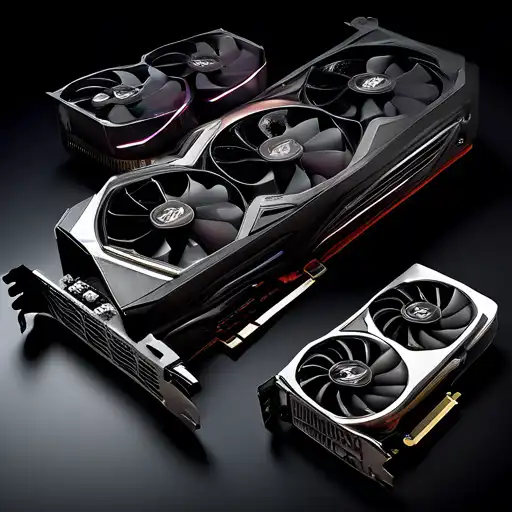Introduction to Choosing the Right GPU
When it comes to gaming, the Graphics Processing Unit (GPU) is one of the most critical components of your setup. It's responsible for rendering images, animations, and video for the computer's screen. A powerful GPU can significantly enhance your gaming experience, providing smoother gameplay and more detailed graphics. But with so many options on the market, how do you choose the right one for your needs? This guide will walk you through the key factors to consider when selecting a GPU for gaming.
Understanding GPU Specifications
Before diving into the vast sea of GPUs, it's essential to understand the specifications that define their performance. Key specs include:
- Core Clock Speed: Measured in MHz, this indicates how fast the GPU's core operates.
- Memory: The amount of VRAM (Video RAM) is crucial for handling high-resolution textures.
- Memory Bandwidth: This affects how quickly the GPU can access its memory.
- CUDA Cores/Stream Processors: More cores mean better performance in processing graphics.
Matching GPU to Your Gaming Needs
Not all games require the same level of GPU performance. Casual gamers might not need the most expensive GPU, while enthusiasts playing the latest AAA titles at 4K resolution will. Consider:
- Resolution: Higher resolutions require more powerful GPUs.
- Game Genre: Some genres are more demanding than others.
- Future-Proofing: Investing in a slightly more powerful GPU can extend its relevance.
Budget Considerations
GPUs come in a wide range of prices. It's important to balance performance with your budget. Remember, the most expensive option isn't always the best for your specific needs. Look for the best value within your price range.
Brand and Model Comparison
NVIDIA and AMD are the leading GPU manufacturers, each offering a range of models tailored to different needs and budgets. Researching and comparing specific models within your budget can help you find the best fit.
Cooling and Power Requirements
High-performance GPUs generate a lot of heat and consume more power. Ensure your PC case has adequate cooling and that your power supply unit (PSU) can handle the GPU's power demands.
Conclusion
Choosing the right GPU for gaming involves understanding your gaming needs, budget, and the specifications that impact performance. By considering these factors, you can select a GPU that offers the best balance of performance and value for your gaming setup. For more tips on optimizing your gaming experience, check out our guide on optimizing gaming PC performance.
